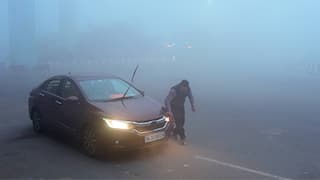TikTokers File Lawsuit To Overturn Montana Ban, Say State Doesn't Have Authority
TikTok, the platform at the centre of the controversy, has argued that the ban infringes on users' First Amendment rights.

Five content creators on the popular video-sharing platform TikTok have filed a lawsuit in an attempt to overturn a ban imposed by the state of Montana. They argue that the ban, which is set to take effect on January 1, 2024, violates their constitutional right to free speech, as reported by the Associated Press. The creators also contend that the state does not have the authority to regulate matters of national security. Montana's Republican Governor, Greg Gianforte, signed the bill into law with the intention of safeguarding residents' personal data and protecting against potential Chinese government surveillance.
In their complaint, the content creators assert that the ban is overly broad, prohibiting all TikTok users in Montana from engaging in protected speech, based on the speculative and unsubstantiated possibility of Chinese government-directed surveillance. The plaintiffs, who engage in various activities on the app such as promoting businesses, connecting with military veterans, sharing outdoor adventures, and expressing humour, argue that the ban would deprive them of their ability to express themselves and communicate with others.
TikTok, the platform at the centre of the controversy, has argued that the ban infringes on users' First Amendment rights. However, the company's spokesperson declined to comment on the lawsuit or disclose whether TikTok played a role in coordinating the legal action.
ALSO SEE: TikTok Ban: Countries That Have Restricted The Short-Video App
The content creators involved in the lawsuit are Montana residents, two of whom have amassed over 200,000 followers. For example, Carly Ann Goddard, one of the creators, uses her TikTok account to share videos about living on a ranch, parenting, recipes, and home decor. Her account has garnered 97,000 followers and has significantly contributed to her family's household income through various monetisation methods available to TikTok creators.
The outcome of this legal battle in Montana may have broader implications, serving as a test case for similar bans on TikTok across the United States. Lawmakers, the FBI, and other officials have expressed concerns that TikTok, owned by ByteDance, could potentially provide the Chinese government access to sensitive information on US citizens or propagate pro-Beijing misinformation. TikTok has vehemently denied these allegations.
While enforcing the ban on TikTok could prove challenging, proponents argue that it is necessary to protect national security. Critics of the ban suggest that it could be circumvented through the use of virtual private networks (VPNs), which encrypt internet traffic and provide users with anonymity. State officials in Montana have noted that geofencing technology, which is employed by online sports gambling apps to deactivate them in states where such gambling is illegal, could potentially be used to restrict access to TikTok.
Montana's law would be rendered ineffective if the federal government were to impose a ban on TikTok or if the platform were sold to a company based in a country not designated as a foreign adversary by the United States. Currently, countries on that list include China, Russia, North Korea, Iran, and Cuba. The lawsuit filed by the TikTok content creators seeks to challenge the ban on constitutional grounds and prompt a reconsideration of the law in Montana.






































